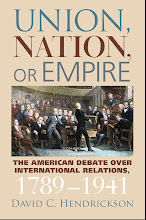Jeremy Grantham was a Cassandra warning against the excesses of the boom. In his October 2008 report, "Reaping the Whirlwind," he summarizes, in ten key points, his perspective on the causes, consequences, and remedies of the financial crisis:
1. “We had an intended period of excess increase in money supply, loan growth, leverage, and below normal interest rates.”
2. This produced “‘the first truly global asset bubble’ in all assets everywhere with only a few modest exceptions.”
3. The authorities, rather than tightening regulations, “partially dismantled them.” Attempts to rein in the growing risks were ignored by Democrats and Republicans alike. When the bubble broke, authorities mischaracterized what was happening: “all was said to be contained and the economy was claimed to be strong.”
4. The ultimate bubble was in risk-taking itself. “The asymmetry here was that if things worked out badly they would help you out . . . but if all went well you were on your own . . . Ah, the joys of pure capitalism.”
5. Investors and authorities were deluded “by the concept of rational expectations, or market efficiency,” which postulated “that we were all far too sensible for major bubbles to appear.” Lulled by these beliefs, investors “were actually paying to take risks for the first time in history” in the last year of the mania.
6. It was not the breaking of the Nasdaq bubble in 2000 nor the breaking of the housing/credit bubble in 2007 that were the outlier events. The true outliers were “the bubbles forming in 1998 and 1999 and in 2003 through 2007.”
7. “If everything goes right (as a bubble breaks) there will always be lots of pain. If anything is done wrong there will be even more. It is increasingly impressive and surprising how much we have done wrong this time!”
8. By far the biggest failing of the financial system “has been its unwillingness to deal with important asset bubbles as they form.” Both Greenspan and Bernanke are the villains in this rogues’ gallery. If you want to avoid a devastating bust, you have to limit manias in their ascent.
9. Addressing the lethal blow given to financial institutions by the destruction of trust is imperative. “Concern about moral hazard is secondary and must be put into abeyance for the time being.”
10. The market is like “an impetuous river that, when turbulent, inundates the plains, casts down trees and buildings, removes earth from this side and places it on the other; every one flees before it, and everything yields to its fury without being able to oppose it; and yet though it is of such a kind, still when it is quiet, men can make provision against it by dykes and banks, so that when it rises it will either go into a canal or its rush will not be so wild and dangerous.” OK, that’s Machiavelli on fortune, and not the esteemed Mr. Grantham on the markets, but this seems to be what JG has in mind here.
I have my doubts about point 9b, but may be mistaken. Take these dicta into the wilderness, too.
Grantham’s valuable reports are available to the public, though access to the GMO site requires registration.
10/26/08
Why A 'K-Shaped' Economy Makes Stocks Riskier
8 hours ago


